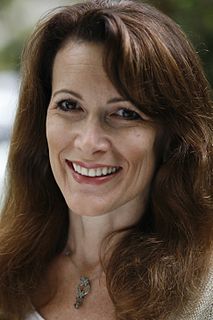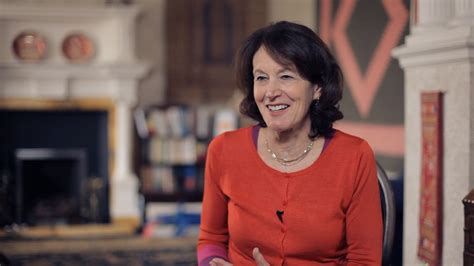A Quote by Gloria Steinem
The father who raises a son to have a profession he once dreamed of, and the mother who uses her daughter as the adult companion her husband is not; the parents who urge their children into accomplishments as status symbols-all these and many more are ways of subordinating a child's authentic self to a parent s needs.
Related Quotes
I know also another man who married a widow with several children; and when one of the girls had grown into her teens he insisted on marrying her also, having first by some means won her affections. The mother, however, was much opposed to this marriage, and finally gave up her husband entirely to her daughter; and to this very day the daughter bears children to her stepfather, living as wife in the same house with her mother!
When my daughter went to school, her last name was mine. The school insisted that her father's name be added to hers, not her mother's. The fact that the mother kept her in her womb for nine months is forgotten. Women don't have an identity. She has her father's name today and will have her husband's tomorrow.
Christianity only hopes. It has hung its harp on the willows, and cannot sing a song in a strange land. It has dreamed a sad dream, and does not yet welcome the morning with joy. The mother tells her falsehoods to her child, but, thank heaven, the child does not grow up in its parent's shadow. Our mother's faith has not grown with her experience. Her experience has been too much for her. The lesson of life was too hard for her to learn.
Her kitsch was the image of home, all peace, quiet, and harmony, and ruled by a loving mother and a wise father. It was an image that took shape in her after the death of her parents. The less her life resembled the sweetest of dreams, the more sensitive she was to its magic, and more than once she shed tears when the ungrateful daughter in a sentimental film embraced the neglected father as the windows of the happy family's house shone out into the dying day.
a mother's death also means the loss of the consistent, supportive family system that once supplied her with a secure home base, she then has to develop her self-confidence and self-esteem through alternate means. Without a mother or mother-figure to guide her, a daughter also has to piece together a female self-image of her own.
Contrary to popular opinion, the most important characteristic of a godly mother is not her relationship with her children. It is her love for her husband. The love between husband and wife is the real key to a thriving family. A healthy home environment cannot be built exclusively on the parents' love for their children. The properly situated family has marriage at the center; families shouldn't revolve around the children.
[After her 18-day disappearance in 1974:] I love my husband very, very much, but he didn't ask me when he ran for mayor and he didn't consult me about running for governor. It would be nice to be asked. ... You know, I've been my mother's daughter, my father's daughter, the wife of my husband, the mother of my six children, and grandmother to my eleven grandchildren, but I have never been me. But I am now because I went away. I am a changed woman.
Child care can almost bankrupt a family, even a two-parent household in which both parents are working. That keeps a parent from being at ease and it really stifles the social and economic growth of a family. Women are hit hard across the board, but particularly in homes where the mother is the head of the household and the only wage-earner. It hurts her, and it hurts her children.
Her [Eleanor Roosevelt] father was the love of her life. Her father always made her feel wanted, made her feel loved, where her mother made her feel, you know, unloved, judged harshly, never up to par. And she was her father's favorite, and her mother's unfavorite. So her father was the man that she went to for comfort in her imaginings.






































